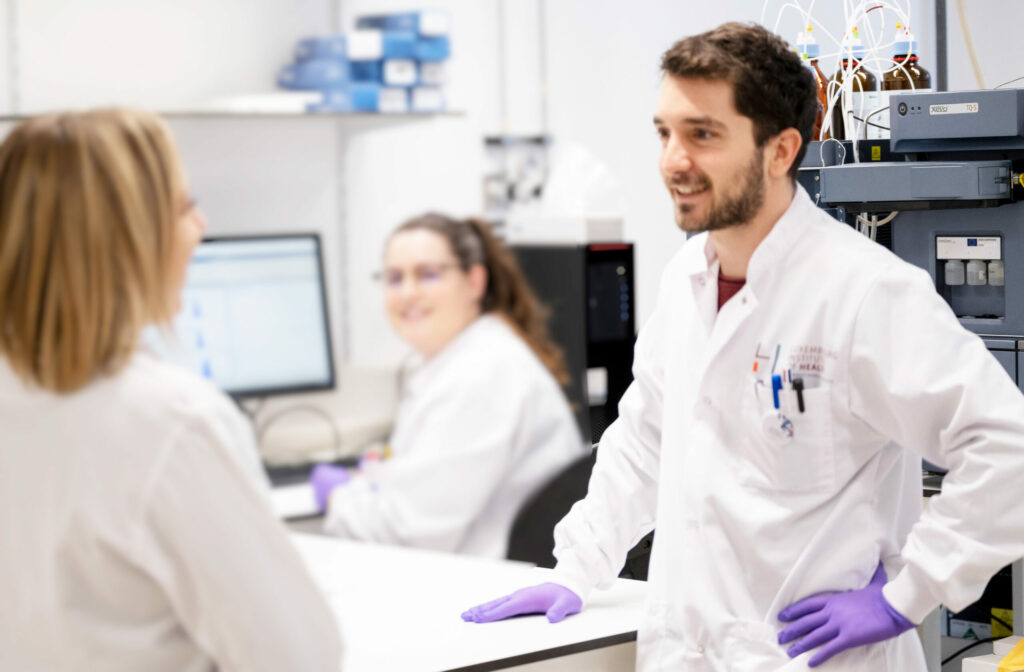
Tumor Immunotherapy and Microenvironment (TIME)
The TIME group aims to define innovative strategies to reprogram the tumor immune landscape and switch “cold” into “hot” tumors.
activities
Cancer immunotherapy has emerged as a revolutionary treatment for many aggressive cancers for which conventional therapies have failed. However, this enthusiastic vision has been seriously challenged by clinical data indicating that only a few numbers of patients benefit from durable clinical remissions, while the majority have a short-term benefit or no benefit at all.
The strategic priority of TIME group relies on discovering druggable targets in tumor cells and pathways in the tumor microenvironment that are able to improve the benefit of cancer immunotherapy by reprogramming cold immune desert tumors into hot inflamed immune infiltrated tumors.
Therefore, TIME research activities are at the forefront of translating basic knowledge into clinical application. To fulfill the strategic priority and strengthen the translational aspect of its research activities, TIME group has established collaboration with leading cancer centers in Europe and biotech and pharma companies.
The ultimate aim of the TIME group is to address the unmet clinical needs by providing the proof of concept to set up innovative clinical trials, which take full advantage of the impressive value of cancer immunotherapy.

Janji
Projects & clinical trials
Some of the group’s research projects include:
- Effect of targeting hypoxia-induced autophagy in the improvement of the anti-tumour immune response in vivo
- Investigation of the autophagy-dependent mechanism involved in the regulation of tumour cell susceptibility to immune cell-mediated killing under hypoxic stress
- Study of the temporal dynamic of immune cells infiltrating autophagy competent or defective hypoxic tumours
- Improving T-cell and Macrophage Immune checkpoint blockades by combining autophagy inhibitors, COMBATIC (FNR CORE)
- Improving the cancer immunotherapy by targeting hypoxia (Roche Pharma)
- Improving cancer immunotherapy based on anti-PD-1 and STING agonists by combining small innovative molecules, SMART COMBO (FNR BRIDGES – Sprint Bioscience)
- Assessment the impact of selective ALDH1 inhibitors on tumor infiltrating lymphocytes and the therapeutic benefit of Immune checkpoint blockers, TRICKALDH (FNR BRIDGES – Advanced BioDesign)
Featured team members
Scientific publications
-
Quantitative pre-clinical imaging of hypoxia and vascularity using MRI and PET – 01/01/2024
-
Combining VPS34 inhibitors with STING agonists enhances type I interferon signaling and anti-tumor efficacy – 01/01/2024
-
Local relapse patterns after preoperative radiotherapy of limb and trunk wall soft tissue sarcomas – 26/07/2024
-
Identification of the role of HIF-1α-dependent hypoxia in the regulation of ACKR2 (Atypical Chemokine Receptor 2) expression in cancer – 26/06/2024
-
Improving STING agonist-based cancer therapy by inhibiting the autophagy-related protein VPS34 – 11/06/2024
-
Hypoxia as a potential inducer of immune tolerance, tumor plasticity and a driver of tumor mutational burden – 28/11/2023
-
CyPep-1 reprograms the tumor microenvironment and enhances the efficacy of immune checkpoint inhibitors – 01/10/2023
-
Lighting Up the Fire in the Microenvironment of Cold Tumors – 05/07/2023
-
Nanoluciferase-based complementation assays to monitor activation, modulation and signaling of receptor tyrosine kinases (RTKs) – 24/12/2022
-
Prevention of acute GVHD disease using an orthogonal IL-2/IL-2Rβ system to selectively expand regulatory T-cells in vivo – 23/12/2022
Related News

Job vacancies
There are no jobs matching this page at the moment. You can view all jobs via the button below.









